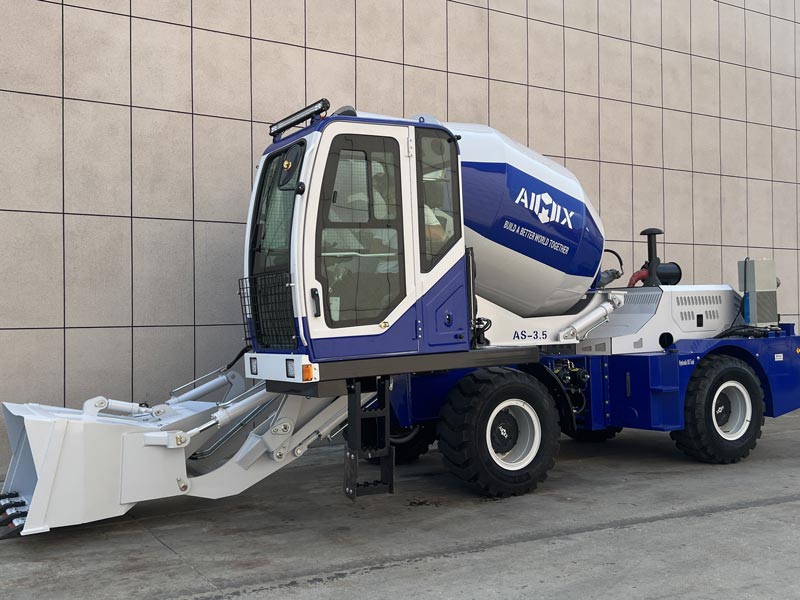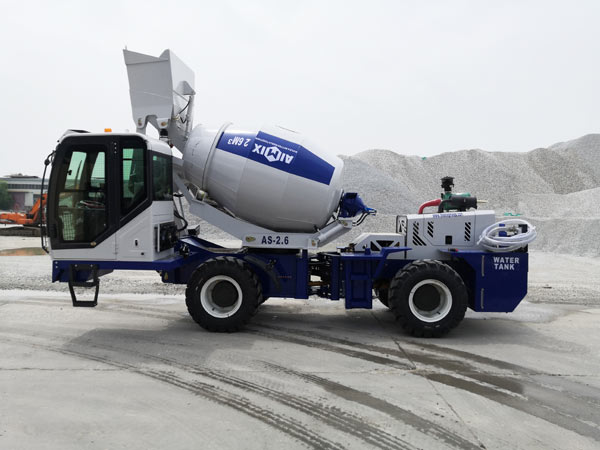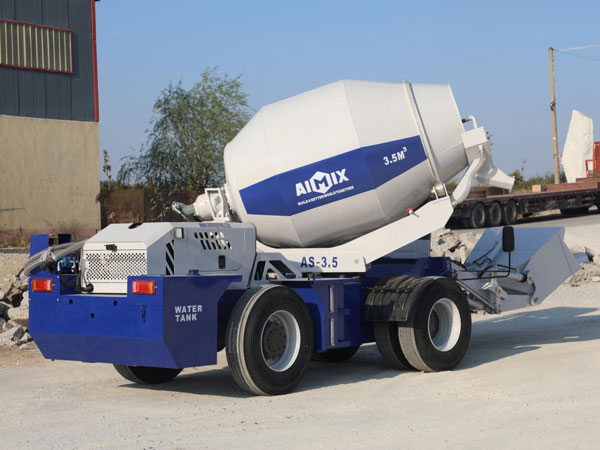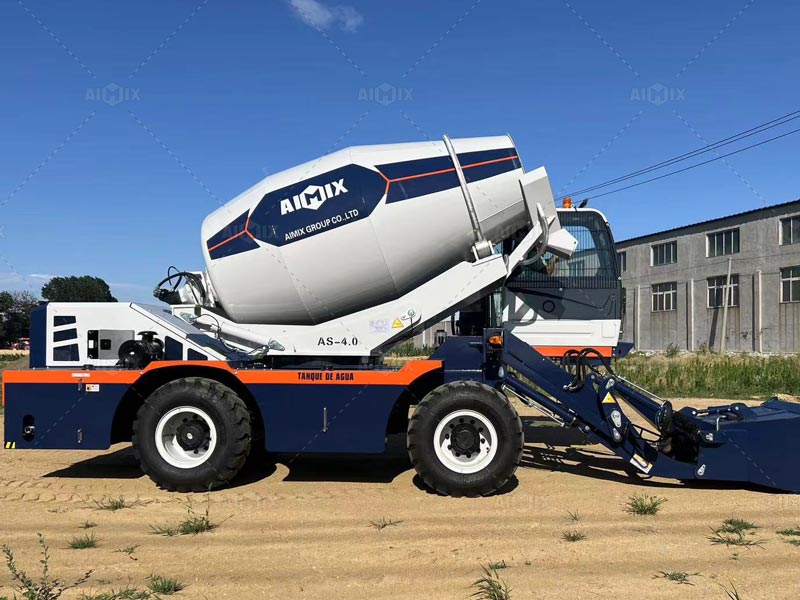Oil leaks in self-loading mixers can cause costly damage and create safety hazards. Addressing these leaks promptly is crucial. In this article, we will discuss how to identify, prevent, and fix oil leaks in self-loading mixers. This comprehensive guide will help you maintain your equipment and avoid unnecessary expenses.

Identifying Oil Leaks
Detecting an oil leak early can save you time and money. Oil leak is a common problem. Knowing more common faults and solutions for self-loading mixers is helpful for normal use of your machine. Regular inspections and monitoring are essential. Look for visible signs of oil on the ground or on the mixer. A sudden drop in oil levels also indicates a leak. Let’s explore the key steps to identify oil leaks effectively.
Visual Inspections
Regular visual inspections are crucial for spotting oil leaks. Check all seals, gaskets, hoses, and connections for wear or damage. A small crack or loose connection can lead to a major leak if left unchecked. Make these inspections a part of your routine maintenance schedule.
Monitoring Oil Levels
Frequent monitoring of oil levels helps detect leaks early. Keep a log of oil levels to notice any sudden drops. If you detect a decrease, inspect the mixer immediately to find the source of the leak. This proactive approach can prevent further damage.
Preventing Oil Leaks
Preventing oil leaks is always better than fixing them. Regular maintenance and proper use of the mixer can go a long way in preventing leaks. Here are some tips to help you keep your self-loading mixer in top condition.

Regular Maintenance
Regular maintenance of self loading mixers is key to preventing oil leaks. Follow the manufacturer’s maintenance schedule strictly. Regularly change the oil and replace any worn-out parts. Use high-quality oil and parts to ensure the longevity of your mixer.
Proper Use
Using the mixer properly also prevents oil leaks. Avoid overloading the mixer. Overloading puts extra strain on seals and gaskets, leading to leaks. Follow the manufacturer’s guidelines for load limits and operating procedures.
Fixing Oil Leaks
Even with the best preventive measures, oil leaks can still occur. When they do, it’s important to fix them promptly to avoid further damage. Here are the steps to take to fix oil leaks in your self-loading mixer.
Identifying the Source
The first step in fixing an oil leak is identifying its source. Inspect the mixer thoroughly to find the exact location of the leak. Common sources include seals, gaskets, and hoses. Once you identify the source, you can determine the best course of action.
Replacing Damaged Parts
In many cases, fixing an oil leak involves replacing damaged parts. This could be a seal, gasket, or hose. Make sure to use high-quality replacement parts. Follow the manufacturer’s instructions for replacing parts to ensure a proper fit and seal.
Seeking Professional Help
Sometimes, fixing an oil leak requires professional help. If you’re unsure about how to fix the leak, it’s best to consult a professional. A qualified technician can quickly identify and fix the issue, ensuring your mixer is back in working order.

Maintaining Your Mixer
Maintaining your self-loading mixer involves more than just addressing oil leaks. Regularly check other components like the engine, tires, and hydraulic systems. Ensure all moving parts are lubricated and functioning properly. This comprehensive approach will keep the efficient operation of self loading concrete mixers.
Engine Maintenance
The engine is the heart of your mixer. Regularly check the oil, filters, and coolant levels. Replace them as needed. A well-maintained engine reduces the risk of oil leaks and prolongs the life of your mixer. Follow the manufacturer’s recommendations for engine maintenance.
Tire and Hydraulic System Checks
Tires and hydraulic systems also require regular attention. Ensure tires are properly inflated and free from damage. Check hydraulic systems for leaks and ensure they are operating smoothly. Regular checks prevent unexpected failures and keep your mixer running efficiently.
Conclusion
Oil leaks in self-loading mixers are a common issue. However, with regular inspections, proper maintenance, and prompt repairs, you can minimize their impact. By following the tips outlined in this article, you can keep your mixer running smoothly and avoid costly repairs. Remember, early detection and prevention are key to managing oil leaks effectively. Maintaining your mixer ensures its longevity and reliable performance.
